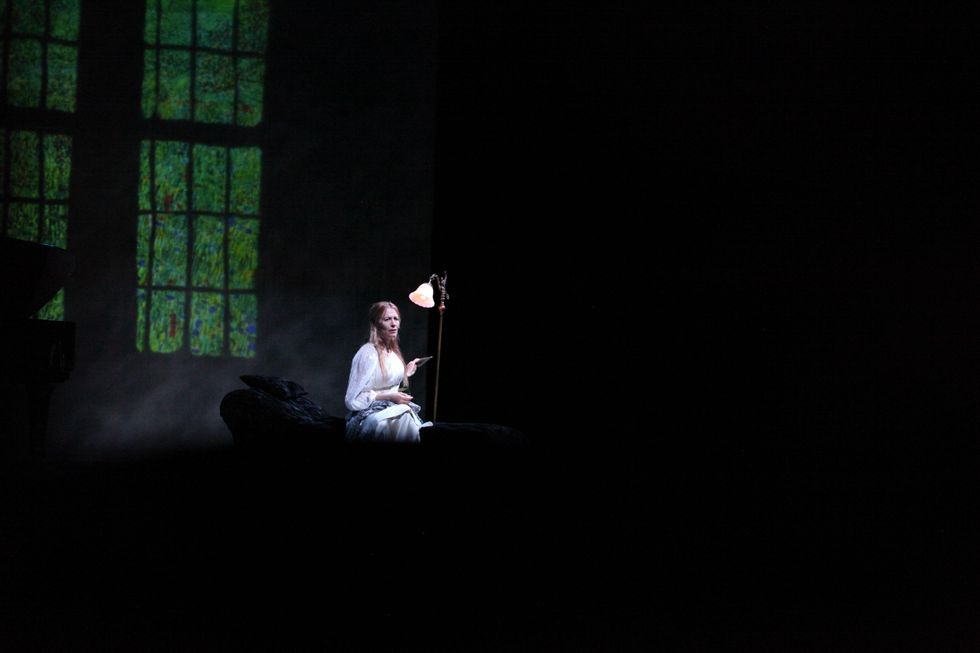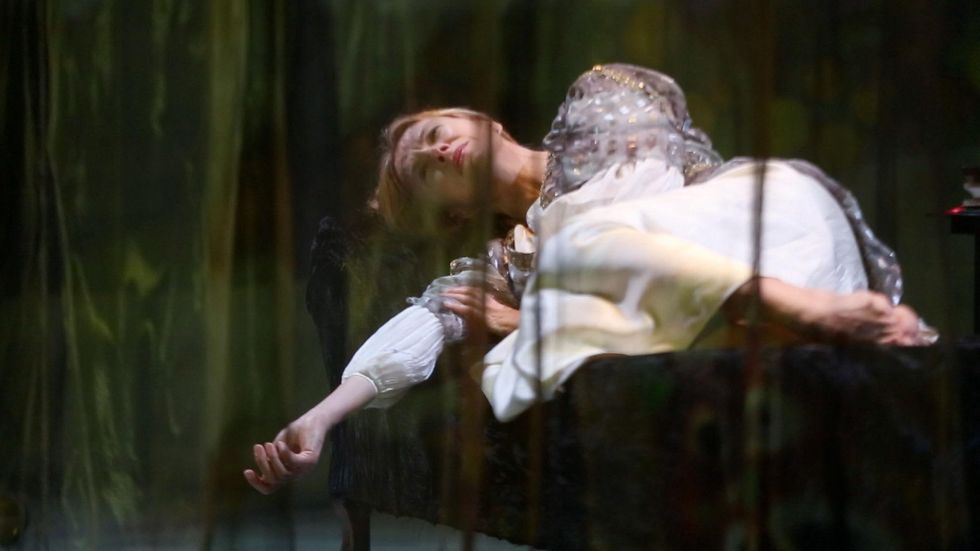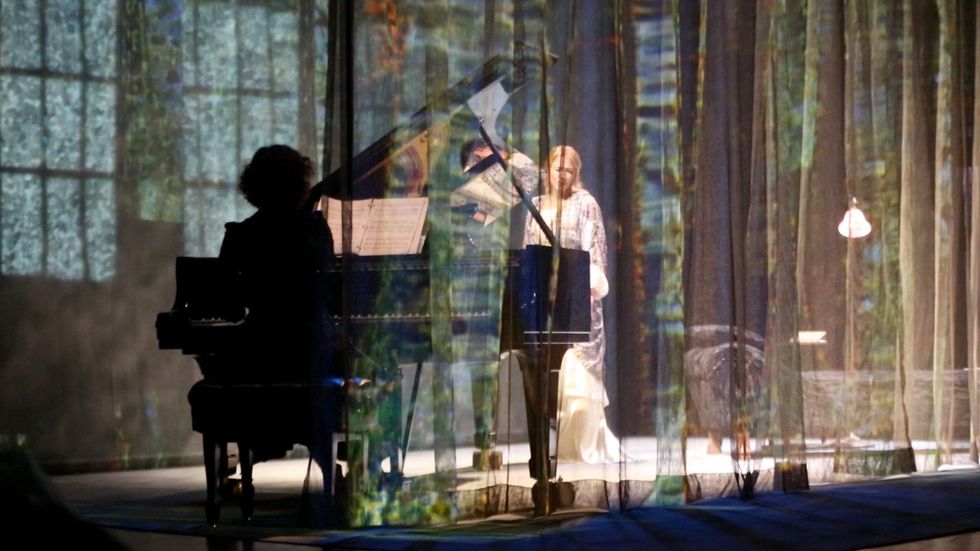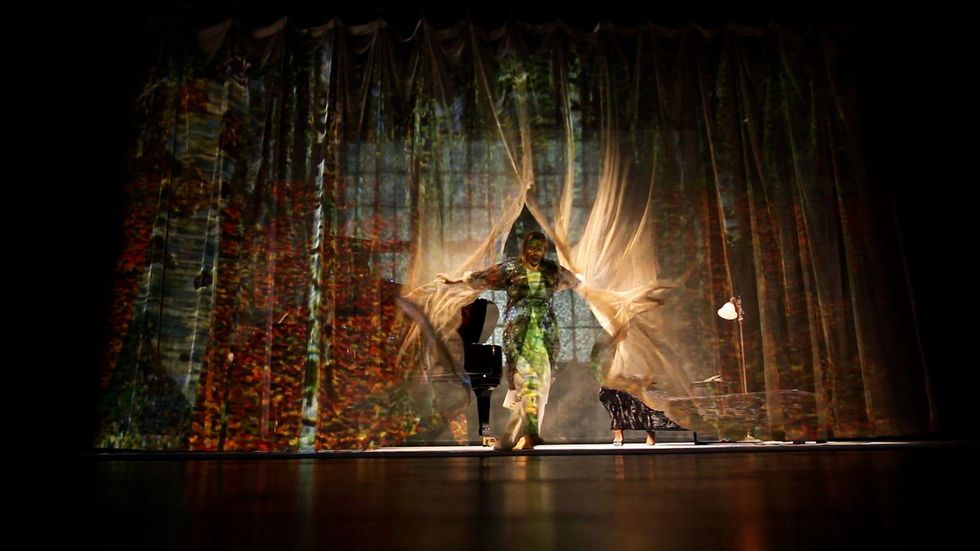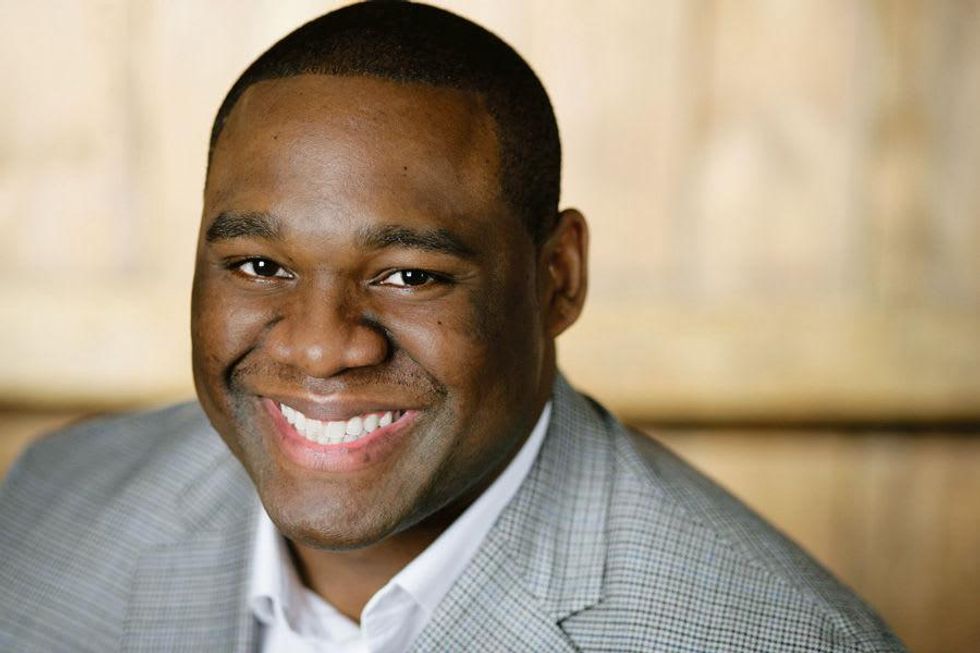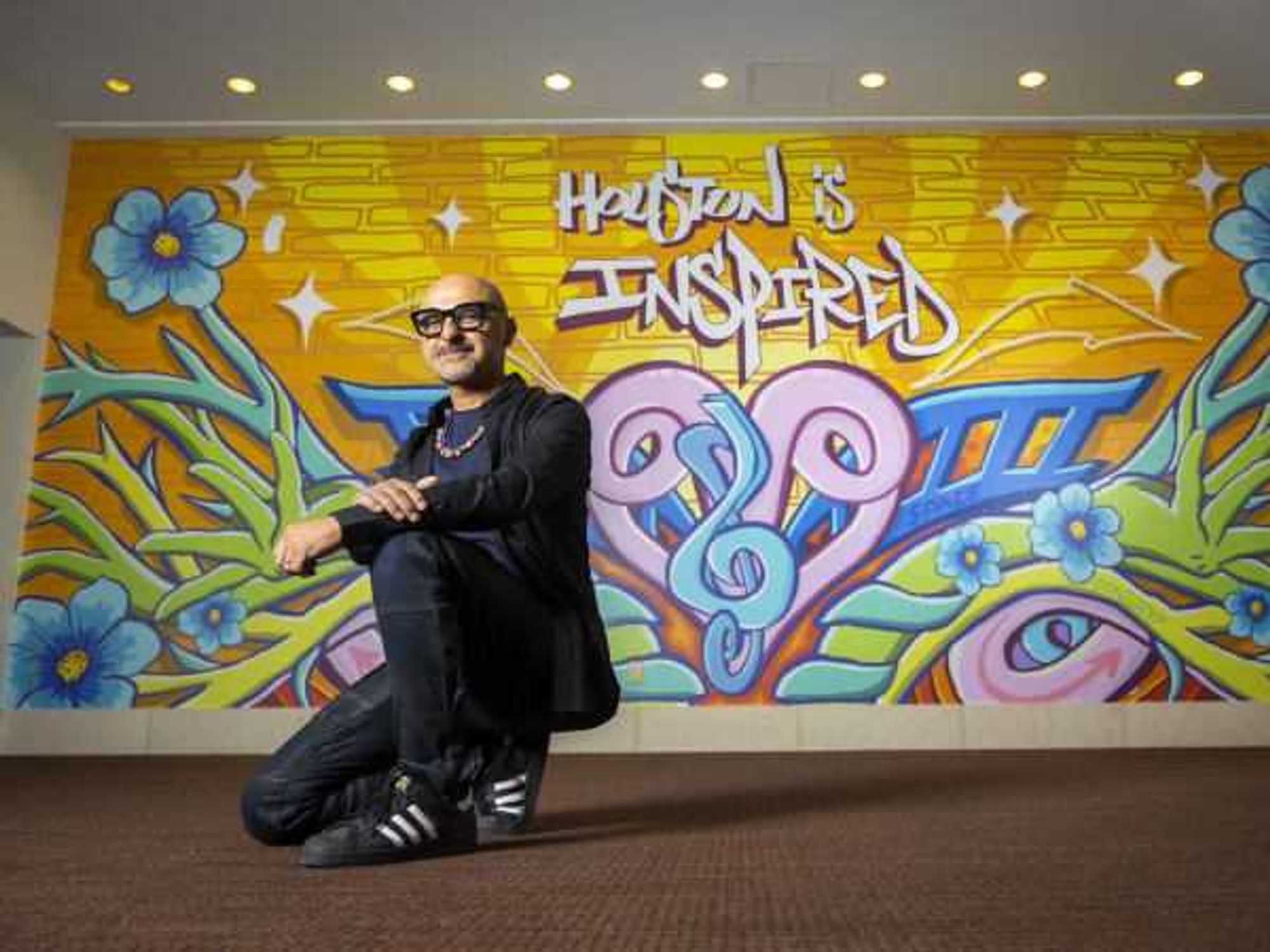Are you sane enough?
Inside the mind of an obsessed lover: Da Camera's multimedia world premiere is an art orgasm
It wasn't one of the finest moments in my life. But surely it was a defining one — and I'm certain you've gone through it, too.
An obsession with unrequited love.
You know what happens. There's a disconnect between fact and fantasy. Your gray matter decides to reinterpret all sorts of messages and symbols to suit its agenda to convince yourself that at the end of this emotionally tumultuous ordeal there's warmth and affection. Suffering is just a part of it. It has to be. That's how we grow, learn and get stronger.
Swedish mezzo soprano Charlotte Hellekant tells it like it is: "When you are in love, it's a potion, it's a drug. You can't resist."
But once the truth rears its unsympathetic head, once you awaken from this reverie — when you realize that person is just not into you — making a grand entrance is the horsemen of the apocalypse. How will you ever cope? So they say that time heals matters of the heart, but self inflicted wounds are another story altogether.
This too familiar saga is the lure of a new multimedia spectacle imagined by Sarah Rothenberg, artistic director of Da Camera of Houston. Her production, titled In the Garden of Dreams, is scheduled to premiere Friday and Saturday at the Wortham Theater Center as the finale to Da Camera's 25th anniversary season. The show is presented in collaboration with Houston Grand Opera's staging of Wagner's Tristan and Isolde.
"When you are in love, it's a potion, it's a drug. You can't resist."
Consider In the Garden of Dreams a contemporary gesamtkunstwerk, a Wagnerian term that describes the synthesis of artistic languages that by design raptures listeners into an aesthetic milieu of augmented emotions. This approach isn't far from Rothenberg's customary concert curation strategy. Her holy grail is to open meaningful windows into the musical patois, something she achieves by weaving a programmatic thread from piece to piece — much like museum curators append their own visual exegesis in arranging paintings and artifacts in a gallery setting.
In the Garden of Dream is her fourth venture into this realm, and the third that's mused by consequential oeuvres of Arnold Schoenberg. The Blue Rider, Chopin in Paris: Epigraph for a Condemned Book and Moondrunk all unite elements of visual arts, literature, theater, music and science while pondering the points of intersection of these fields of study. The Blue Rider's 2009 New York premiere was hailed as "Fascinating....incandescent" (New York Times) and "a spellbinding program of music [and] projected images" (Wall Street Journal).
With set and lighting by Marcus Doshi and projections by Sven Ortel, In the Garden of Dreams kindles the creative zeitgeist of fin de siècle Vienna.
Let's set the scene.
In the early 1890s, Brahms was composing his last works — including the Seven Fantasias for piano, Op. 116 and Four Pieces for piano, Op. 119 — in a traditionalist mode that rejected the New German School as embodied by Richard Wagner. German symbolist artist Max Klinger's fondness for music — particularly of Beethoven, Schumann and Brahms — triggered a collection of 18 intaglio prints and 23 lithographs that amplified the essence of the score and text of Brahm's songs. Klinger's Brahms-Phantasie echoes Brahms' personal interest in poetry such that when Klinger sent his creation to Brahms in 1894, Brahms responded with a letter that read, ". . . all art is the same and speaks the same language."
"You have this whole world in Vienna that we don't always think of as overlapping," Rothenberg explains. "We tend to think of the 20th century as starting. We don't think about the fact that Sigmund Freud could've been sitting at a cafe writing The Interpretation of Dreams (1899) with Brahms around the corner."
At the same time, Schoenberg penned his first piano pieces. A decade later, Schoenberg finished a 15-part song cycle inspired by the lyrical, imagistic prose of Stefan George. The Book of the Hanging Gardens is a poignant monodrama for voice and piano that marked the beginning of Schoenberg's trials with atonality, though he preferred the term expressionism, whose protagonists experience the extremes of the anticipation, illusion, frustration and cessation of love.
"The idea behind my productions is that people lose themselves in the piece to such an extent that they can't distinguish between when they are looking and when they are listening."
This whirlwind of ideas frame Rothenberg's concept. The addition of erotic images of Gustav Klimt and fragments of August Strindberg's A Dream Play offers supplemental context for bass baritone, Michael Sumuel in the Brahms and Hellekant in the Schoenberg to react dramatically to this unconscious, dream-like sequence.
"He isn't likable, but he's relatable," Sumuel explains about his character. "He goes through such an emotional rollercoaster in a short period of time."
Sumuel is an HGO Studio alum who appeared recently in the opera company's La bohème and Don Giovanni. Hellekant's demonstrative prowess was in full force in her 2012 debut with the Los Angeles Philharmonic conducted by Gustavo Dudamel. She's earned a reputation for investing "her whole personality in the work, lending her expressive, warm and flexible tone" (Opera Magazine), a skill vital to executing Schoenberg's demanding score.
Rothenberg's intuition aligns with Schoenberg's philosophies, particularly on his definition of the total work of art. When she came across a quote from Schoenberg that advocated for a new kind of theater, one that would make "music with the media of the stage," she realized that's what she had been doing all along.
"The idea behind my productions is that people lose themselves in the piece to such an extent that they can't distinguish between when they are looking and when they are listening," she says. "Everything that's there, that's visual and dramatic, is to allow them to experience the music even more viscerally."
My question to you is: Are you sane enough for a cathartic experience? Heck, call it an art orgasm.
___
Da Camera of Houston presents Sarah Rothenberg's In the Garden of Dreams on Friday and Saturday, 8 p.m., at Wortham Theater Center. Tickets start at $28 and can be purchased online or by calling 713-524-5050.

